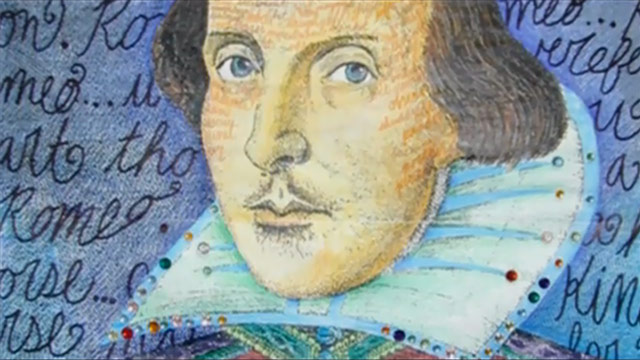Whilst stealing by nature carries criminal connotations, musicians (and Picasso) will preach that even the greats will borrow. One might find that, actually, passages from T.S. Eliot canvassing the artistic theft of other’s work actually contributes to the creation of new art.

If, like us, you have wondered which comes first: the music or the lyrics? The answer varies from song-to-song and musician-to-musician.
Songwriters have confessed their love for poetry to help bridge the intersections between producing sounds and sonnets. Plenty of them have taken that route themselves, publishing collections of poems of their own, inspired by song writing.
Back in 2016, folk/blues legend Bob Dylan won a Nobel Prize in Literature for ‘having created new poetic expressions within great American song tradition’. English performance poet John Cooper Clarke beaconed the punk movement in the late ‘70s that established him as the ‘punk poet’; and over the pond, there was Patti Smith. Canadian singer/songwriter Leonard Cohen published several books of poetry before releasing his first album, Songs of Leonard Cohen, in 1967. This is just to name a few.
Laureate or not, musicians have taken inspiration from poetic works since long ago, whether to sing an ode to their favourite rhymists or to zhuzh up their lyrical styles.
Here is a playlist featuring excellent tracks, all inspired by poetry.
Alexandra Leaving – Leonard Cohen
“Upheld by the simplicities of pleasure
They gain the light, they formlessly entwine
And radiant beyond your widest measure
They fall among the voices and the wine.”
Based on: The God Abandons Antony (1911) by Constantine P. Cavafy
Cohen’s simple refashioning of the Greek poem voices Cavafy’s narrative from a different frame. Whilst the original passage is based around the city of Alexandria, Cohen goes on to build upon a story surrounding a woman called Alexandra. Even with deliberate additions and reductions, Cohen’s adaptation maintains Cavafy’s original references to time and continuity in loss. It represents Cavafy’s in the same way that it is more than a re-telling of Plutarch and more than a story of a lost lover, but a ‘vision of loss and dignity.’
The Man Who Sold The World – David Bowie
“We passed upon the stair
We spoke of was and when
Although I wasn’t there
He said I was his friend
Which came as some surprise
I spoke into his eyes, “I thought you died alone
A long long time ago.”
Based on: Antigonish (1899) by William Hughes Mearns
Much like any Bowie number, the literary-charged lyrics from this one are cryptic and evocative, reportedly inspired by numerous precursors such as Mearns’s haunting poem, but also a 1949 Robert A Heinlein sci-fi novella “The Man Who Sold the Moon”, a 1954 DC comic “The Man Who Sold the Earth” and more. Whilst Mearns paints a terrifying picture of meeting a man who occupies the stair but isn’t truly there, Bowie ‘compounds’ the identity crisis while believing his companion ‘died alone, a long, long time ago.’
Annabel Lee – Stevie Nicks
“But our love was stronger by far than the love
Of those who were older than we
Of many far wiser than we
And neither the angels in heaven above
Nor the demons down under the sea
Can ever dissever my soul from the soul
Of the beautiful Annabel Lee.”
Based on: Annabel Lee (1849) by Edgar Allan Poe
Nicks wrote the song when she was 17, borrowing words from Edgar Allan Poe’s poem of everlasting love beyond the grave, and it just ‘lived in her head’ ever since. She recalls penning the song as a teenager sitting on her bed, overwhelmed with the romanticism of it. Decades later, she finally recorded the song as part of her ‘In Your Dreams’ record.
Inside A Dream – Pet Shop Boys
“Taking a ride inside a dream
Living a world I’ve never seen
Wishes come true that should have been
Looks familiar, feels obscene.”
Based on: The Land of Dreams (1800) by William Blake
Using direct excerpt from the poem about a father and son’s nostalgia, the English songwriter Neil Tennant described the track as though being in a state of dreaming and taking yourself out of your mundane surroundings. The poem portrays the same dream aspect of yearning for happiness, or in their case, something that is now out of reach.
I Wanna Be Yours – Arctic Monkeys
“Let me be your ‘leccy meter and I’ll never run out
And let me be the portable heater that you’ll get cold without
I wanna be your setting lotion
Hold your hair in deep devotion
At least as deep as the Pacific Ocean
I wanna be yours.”
Based on: I Wanna Be Yours (c.1980) by John Cooper Clarke
Arctic Monkeys’ adaptation of Clarke’s work uses near-verbatim lyrics, borrowing the same title, however refurbished into a full-on love song, away from the original semi-comedic undertones. Clarke, who has been frontman Alex Turner’s life-long muse since his GCSE English days, elaborates on his work as a classic love poem in which the writer expresses ‘his desire to be useful to the object of his desire.’ The idea of everyday things depicted with startling intimacy is something both artists eloquently expressed lyrically and musically.
Not Waving, But Drowning – Loyle Carner
Based on: Not Waving but Drowning (1957) by Stevie Smith
“A lot of people pretend, out of bravery really
That they are very jolly and ordinary sort of chaps
But really they do not feel at home at all in the world.”
British rapper Loyle Carner titled his second album after this track, based on Stevie Smith’s poem that he personally resonated with whilst writing the record. The poem tells a story of a drowning man whose frantic arm gestures are mistaken for waving by distant onlookers. Similarly, he felt even in the upward trajectory of his career that ‘I was drowning but everyone thought I was hanging out.’ The song is also a tribute to his grandad, another wordsmith he looked up to, who left him his poetry book when he died that included a poem written in response to Smith’s 1957 work.
Honourable mentions:
Whitey On the Moon – Gil Scott-Heron
A poet turned musician, Gil’s work gave voice to black protest in the 70s that inspired generations of artists after him. Heron published a collection of poetry and a debut novel following his debut album “Small Talk At 125h and Lenox”. Emerging from a background in literature and representing the ‘joy and pride of Blackness’, Heron was relied on as an icon who spoke fluently and courageously about the realities of African-American life. What would traditionally sound heavy-weight, Gil conveyed with lightness of touch, compassion, and of course, charming rhymes.
Tw*t – John Cooper Clarke [Explicit]
Performing as a poet on the same bill as The Sex Pistols, Joy Division, Elvis Costello, and the likes, Clarke was awarded an honorary doctorate of arts in “acknowledgement of a career which has spanned five decades, bringing poetry to non-traditional audiences and influencing musicians and comedians” by the University of Salford. This witty number is told in his usual sarcastic, cynical tone, as he articulately mocks someone in a way that rhymes.









